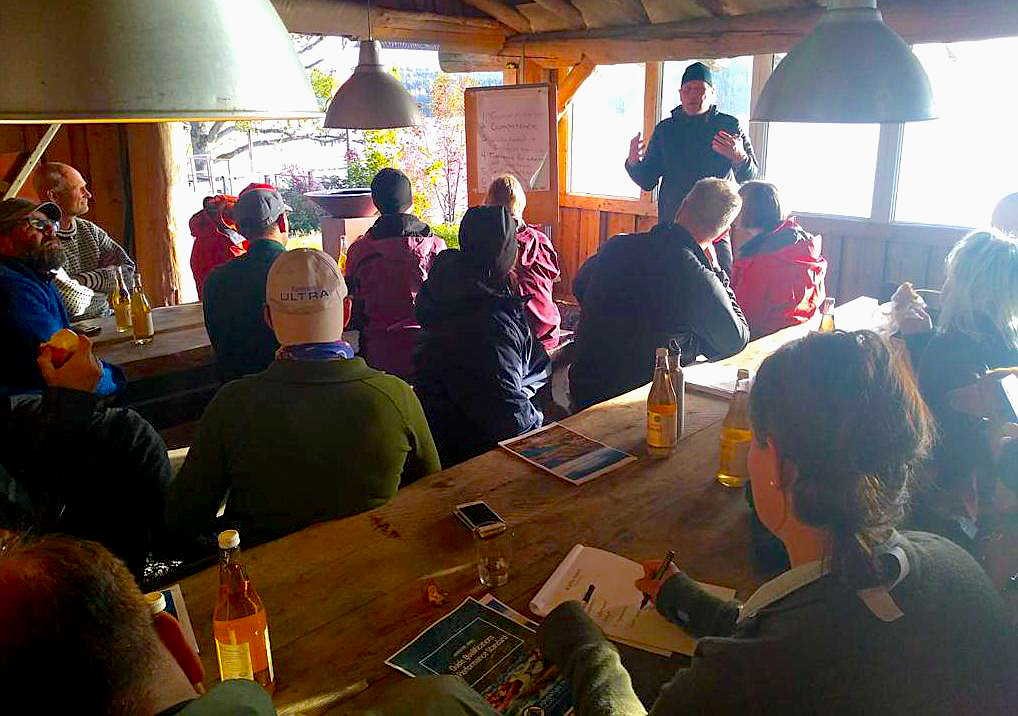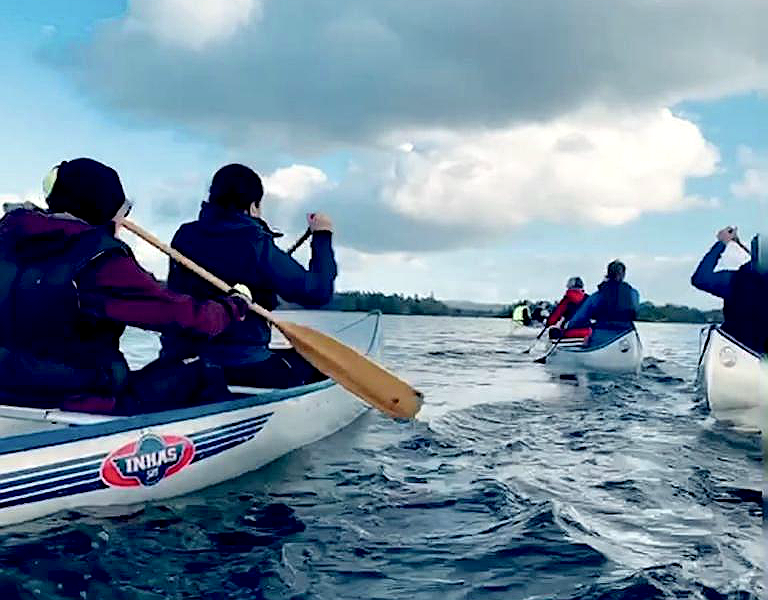Guiding skills are at the core of the success of adventure travel destinations.
There is no question that what constitutes the competitive advantage of an adventure travel destination is its success in facilitating an experience that excites the traveler, and stays in their heart and mind. While the entire network of destination stakeholders who interact with guests impact the experience, one of the most important roles falls on the guide.
This is not news, of course, but at the Adventure Travel Trade Association (ATTA) we find in our work around the world that we often need to educate destinations and travel-associated companies that, if they want to grow and compete effectively in the global adventure travel market, they must pay special attention to the capacities of local guides. Our recent work with the community of professional guides in Sweden’s Småland Region was a reminder that even a frontrunner in adventure travel can benefit from enhancing the complex set of skills that guides need to be top performers.

One of the things that makes guiding such an exceptional profession is the combination of skills that need to be mastered. First, guides must have the universal technical skills for the specific activity they lead (rafting, hiking, biking, etc.). They must be able to navigate through the areas they operate in, ensure safety, and capably respond to risks. Second, guides must be prepared for emergency situations, as well as provide first aid and wilderness medicine.
In addition to these functional skills, a guide needs to have a set of soft skills to provide customer service, communicate well with the group and to manage group dynamics. Soft skills are also essential to translate the vast knowledge a guide has about a destination’s culture and nature. Responsible travel is another key pillar of guiding — group leaders need to know how to help travelers enjoy their surroundings with care and respect for locale and community.
Experience or professional training
The tourism authority of Småland partnered recently with the ATTA to host a professional training for guides operating there, to help ensure the local industry is prepared to welcome adventure travelers in ways that will surpass their expectations. Even though all participants in the training were experienced professionals, the 5-day interactive program made a big impact.

Led by two of the pioneers in the adventure travel community, Jean Claude Razel and Jim Coffey, the program included three days of interactive training and a 2-day immersive practicum. During the first three days, Jean Claude and Jim introduced hands-on content around the five skill areas needed in guiding: universal technical skills, first aid and wilderness medicine, customer service and group management, natural and cultural interpretation, and sustainability. Their combined experience proved a rich resource for local guides.. “This was an exceptional learning experience. Jim and Jean Claude had answers for everything that came up in the program,” shared one participant.
The second part of the program included a strong practicum component, and the group engaged in two days of outdoor activities and an overnight stay. During the practicum, participants learned the best response in a risk situation, appropriate tactics for avoiding weather-related crises, smart ways of engaging members in the travel group, and memorable ways of telling stories that interpret local culture and nature. One participant noted, “The biggest value for me was the importance of the soft adventure skills that guides should have. When we hear “adventure guide,” most of us think about advanced technical skills and knowledge. What we learned in the program helped strengthen this entire set of skills we did not think about so much.” Johan Delfalk, Senior Project Manager at Småland Tourism, was also pleased. “This program was excellent and Jim and Jean Claude were outstanding. I think that all regions in Sweden will benefit greatly from this training.”
Ensuring that local guides are well-trained and prepared to meet the needs of adventure travelers is valuable even in the most sophisticated destinations. The combination of skills that allow guides to offer unforgettable experiences requires development and practice. Given that guides are the ones who perhaps best tell the story of any destination, an investment in their expertise is an investment in the destination’s tourism future overall.
